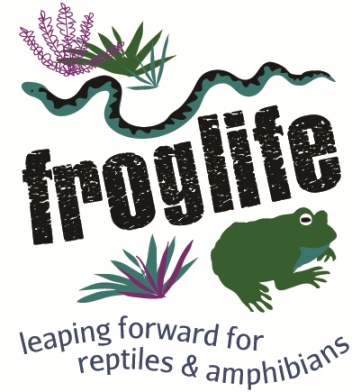What are Evidence Champions?
Evidence Champions are organisations that have signed an agreement to make a clear commitment to involve Conservation Evidence and other relevant sources of scientific evidence at some stage of their process. Evidence Champions agree to the principles of evidence-based conservation and many Evidence Champions have acted as co-designers in some element of the delivery of Conservation Evidence through testing new tools and guidance and writing support documents with us.
Through this programme we aim to provide not only the scientific evidence, but the tools and skills needed to use it in order to make scientific evidence use routine and increase the effectiveness of conservation actions.
Who are the Champions?
Current Evidence Champions include:
You can find out more about who the Champions are.
Why become an Evidence Champion?
Becoming an Evidence Champion has many benefits. You will become part of a network of forward-thinking organisations creating a demand for evidence-based practice, and making conservation more effective.
- We provide networking events, discussion forums and opportunities for Evidence Champions to share ideas, successes, and failures and foster collaborations.
- Your logo and description will appear on our Evidence Champions page, we will link to your website and we will promote your organisation through our various networks.
- We can provide in-house or online training in skills for assessing, gathering, using, generating scientific evidence and more.
- We can provide support in delivering evidence-based practice and training in how to incorporate scientific evidence with other important information to make decisions.
- We can provide evidence assessment support.
- As an accredited Evidence Champion, we will provide you with our logo to put on your website.
- We will promote our Evidence Champions across our various networks.
How can my organisation get involved?
Commitment to evidence-based conservation can come in many forms. We welcome discussions with your organisation, but here are our nine main categories:
- Routinely include evidence in decisions.
- Experimentally test and publish tests of management interventions.
- Ask grantees to check for evidence in their grant proposals.
- Create links to Conservation Evidence from your database.
- Teach Evidence-based conservation.
- Produce evidence-based guidance.
- Submit grey literature reports testing interventions to CE, or make publically available on own website.
- Ask authors to check papers testing interventions against the Conservation Evidence database (relevant to those that publish peer-reviewed studies)
- Include Conservation Evidence within decision making tools (relevant to those that produce software for decision making)
You can register your interest by contacting Rebecca Smith at: rks25@cam.ac.uk









)_2023.JPG)











